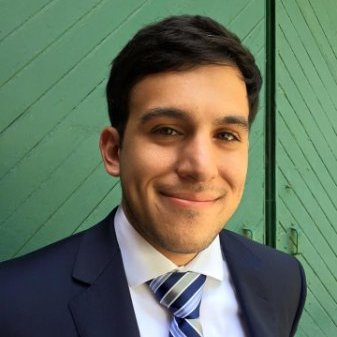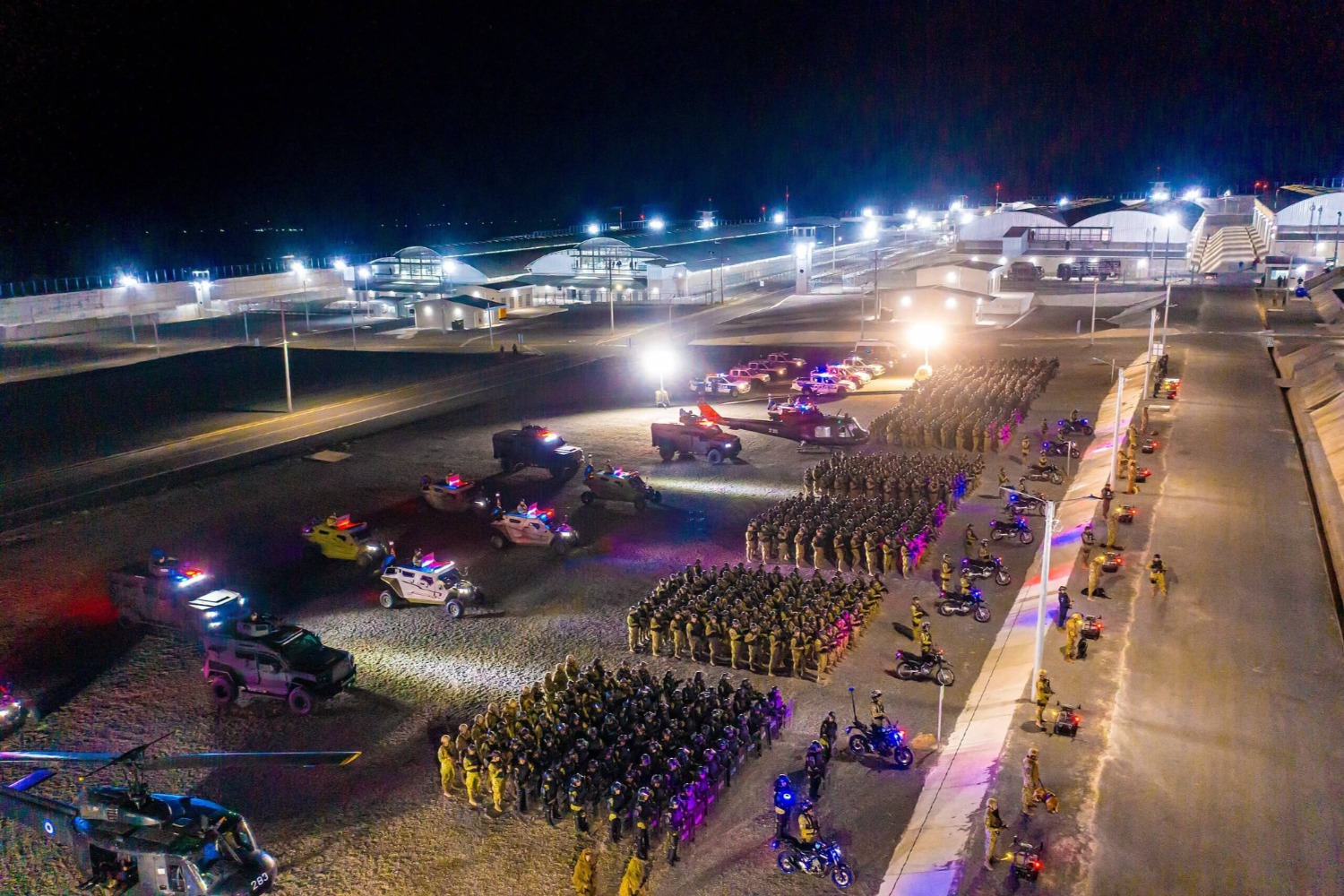Water Wars: Looking Through a Glass, Darkly, in the South China Sea
"Peace through strength" in the South and East China Seas
Published by The Lawfare Institute
in Cooperation With

"Peace through strength" in the South and East China Seas
President-Elect Donald Trump meets with President Obama in the White House (Photo: Yahoo)
Donald Trump’s election has created significant uncertainty about the future of U.S. strategy in the South and East China Seas. While there is no Trump agenda for this issue in particular, the President-Elect’s discussions with regional leaders and statements from influential surrogates begin to paint a picture of the new administration’s policy.
“Peace through strength” appears to be the byline of President-Elect Trump’s foreign policy, including his stance towards the South China Sea. Trump has decried China’s “massive fortress” in the region and claimed the Beijing was “getting away with murder” during the Obama administration. He has suggested using Washington’s “trade power over China” to halt Beijing’s activity in the South China Sea. To ameliorate the situation, Trump called for significantly increasing the size of the U.S. Navy, from roughly 270 to 350 ships. Trump surrogate Peter Navarro criticized the U.S. rebalance towards Asia as “invit[ing] Chinese aggression in the East and South China Seas.” Navarro went on to lament “the litany of allies and partners mistreated under this administration” and asserted that a US defense presence is “essential for liberal values like freedom of the seas to prevail.” James Woolsey, another senior Trump aid, presents a much less hawkish vision for Trump’s foreign policy. He argues that while Washington will persist in “reinstat[ing]” strategic primacy, “we must also redraw our red lines and redefine our vital interests” with regard to US-China relations. For a deeper dive into statements on China, Graham Webster’s Trump-China reading list is a must read.
The Trump campaign’s non-specific and seemingly contradictory statements on the South China Sea have elicited a range of reactions from regional leaders. President Xi Jinping congratulated Trump and looked “to push China-U.S. relations further forward from a new starting point, better benefiting the peoples of the two countries and other countries.” Responding to Trump’s statements concerning the South China Sea, however, Foreign Ministry Spokesperson Lu Kang said that, “we need time to see what kind of policy will be adopted.” In an unexpected turn of events, an editorial from Xinhua warned that isolationist policies during the Great Depression “accelerated the country’s economic crisis.” The Global Times similarly argued that, “US allies across the world will pressure Washington to restrain Trump from isolationism.”
Philippine President Rodrigo Duterte was more effusive in his praise, saying that, “We both curse for the slightest reason. We are alike.” Duterte also asserted that he doesn’t “want to quarrel anymore, because Trump has won,” perhaps signaling a shift from the past month of acrimonious relations between Manila and Washington. Australian Prime Minister Malcolm Turnbell also welcomed President-Elect Trump, though in different terms. He told reporters that, “I have absolutely no doubt of the commitment of the United States to the alliance.” The picture looks very different in Jakarta, where only 10% of Indonesians wanted Trump to win the election and 18% thought that Trump would make the world safer.
In other news...
The Philippines
Manila deployed two Coast Guard vessels to the area after Philippine vessels regained access to traditional fishing grounds around Scarborough Shoal last week. The Coast Guard vessels arrived on Monday; a total of six ships are expected to patrol the shoal. Philippine Ambassador to Beijing Jose Santiago Santa Romana hailed this modus vivendi and argued that, “China is now complying with the arbitration court’s ruling.” The Coast Guard has not said how close its vessels have gotten to Scarborough Shoal. We should not expect Scarborough to get any more crowded in the near future. Armed Forces of the Philippines Spokesperson Brigadier General Restituto Padilla told reporters “We won’t be sending any ships for the moment.”
We also return to a bit of old news this week. Since taking office, President Duterte has threatened to “separate” from the United States, put joint exercises on hold, and cut back on Manila’s defense commitments to Washington. Nevertheless, Duterte has decided to allow one annual war game to continue (though two others were cancelled) and implement an enhanced defense arrangement signed by his predecessor.
Japan
Four Chinese Coast Guard vessels operated within the contiguous zone and territorial sea surrounding Japanese-controlled Senkaku/Diaoyu Islands between November 5th-7th, according to the Japanese Coast Guard. Japan filed a protest with the Chinese Foreign Ministry condemning the operation. Tokyo has lodged 32 protests this year regarding a total of 31 days of intrusions by Chinese vessels in Japanese-controlled territorial waters.
Indian Prime Minister Narendra Modi is making his third trip to Tokyo this week to pen a raft of agreements expanding bilateral ties. Reports suggest that Modi will purchase 12 US-2i amphibious aircraft worth roughly $1.5 billion and sign Tokyo’s first civil nuclear deal with a country not party to the Non Proliferation Treaty. Chinese Foreign Ministry Spokesperson Lu Kang called on India and Japan to “respect the legitimate concerns of other countries especially those in the region and do more things conducive to regional peace and stability.” The Global Times was more forthright, arguing that New Delhi “seems to have overestimated its leverage in the region.”
Taiwan
The Coast Guard Administration and Navy will conduct a joint humanitarian drill around Itu Aba/Taiping Island at the end of this month. The drill is designed to demonstrate progress being made to transform the Taiwanese-controlled island into a humanitarian rescue and supply base.
Indonesia
President Joko Widodo told the Sydney Morning Herald that waters around Natuna Island in the South China Sea are “our territory” and asserted that “there is no compromise on sovereignty.” Defense Minister Ryamizard Ryacudu was more specific, saying “We will equip Natuna with a port and extend its military air base runway. The runway should be enough to accommodate four jet fighters.” Though he clarified that “we are not in a war situation,” he admitted that, “the South China Sea is very close to us. We have to be prepared.” The administration is undertaking a complete review of Indonesia’s weapons systems and is considering a range of defense purchases, sparking a speculative boom amongst defense manufacturers.
China
IHS Jane’s Defense Weekly reports that the Chinese Navy has launched its fortieth Jiangdao-class corvette, designed for mid-range missions and littoral duties. The Navy plans for a 60-vessel fleet of this class. In other news, the Chinese and Vietnamese Coast Guards conducted a three-day joint patrol of joint fishing grounds in the Beibu Gulf on Wednesday.
Malaysia
A skeptical populace greeted Prime Minister Najib Razak as he returned from a trip to Beijing last week. Significant portions of the Malay-Muslim majority, who deeply distrust Malaysia’s ethnic Chinese population, worry that Razak is “selling off” Malaysia to Beijing. The Prime Minister brushed off these concerns, saying that, “Some have scaremongered that Malaysia is being sold off. This is absurd and absolutely false.”
Analysis, Commentary, and Additional Information
Donald Trump’s election has elicited an avalanche of commentary as analysts try to understand how his administration will shape the Asia-Pacific. As an initial matter, we must recognize that much remains unknown. Ayako Mie at the Japan Times, for example, argues that, “the billionaire businessman represents uncharted waters.” The Economist, in a sweeping broadside against Trump, notes that “it is not clear who will agree to serve as his specialists—nearly the entire Republican cohort of Asia hands has disowned him.” The Financial Times is similarly exasperated, writing that “US allies and adversaries alike are wondering which is the real Donald Trump: the isolationist . . . or the Republican who is surrounding himself with hawkish advisers on China.”
Notwithstanding this uncertainty, many pundits project a United States in retreat. Though Hugh White believes that, “the problems that confront America in Asia are exacerbated but not caused by Trump’s idiosyncratic brand of pugnacious isolationism,” he concludes that Washington’s traditional global role has been fundamentally undermined. Former Australian Prime Minister Paul Keating makes a similar point, contending that, “we have to . . . make our way in Asia ourselves with an independent foreign policy.” Ankit Panda at The Diplomat expects to see “the disintegration of U.S. alliances and a reversal of the momentum generated by the Obama administration.” Sheridan Mahavera at the South China Morning Post believes that Trump’s comments about Muslims will force Malaysia, which is 60% Muslim, more firmly towards Beijing. Hunter Marston at New Mandala also envisions a “new regional order in Asia with an empowered and maximalist China.”
Others, however, come to a very different conclusion. Shannon Tiezzi at The Diplomat, for example, argues that, “there is no guarantee” that Trump will operate within the bounds of traditional US-China policy. There is some evidence to suggest this might be true, particularly regarding China’s trade practices.
Of course, all of this analysis is necessarily speculative. Going forward, we can only proceed by following the advice of Deng Xiaoping, “crossing the river by feeling the stones.”
Water Wars is our weekly roundup of the latest news, analysis, and opinions related to ongoing tensions in the South and East China Seas. Please email Chris Mirasola with breaking news, relevant documents, or corrections.






